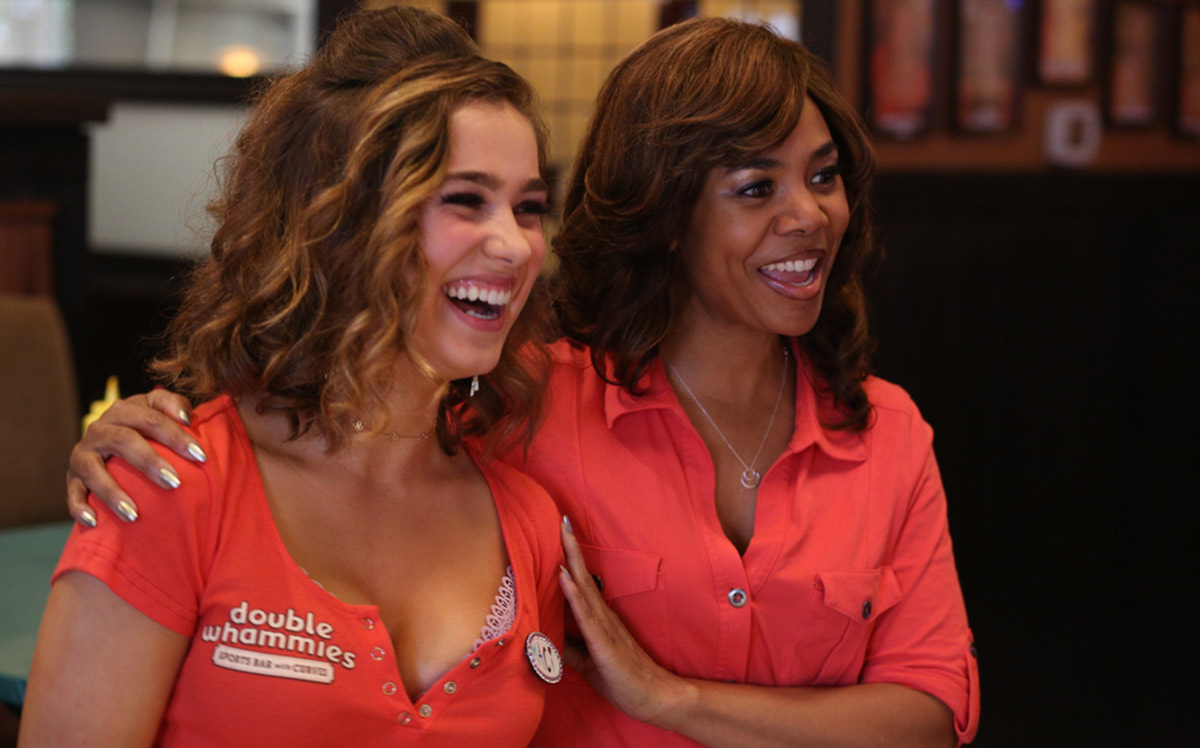Though Andrew Bujalski’s budgets have deservedly improved over the long sixteen-year span in which he has been active, his films still retain that unique and almost inexplicable sense of honest humanity present in his debut film “Funny Ha Ha.” That film wooed even the most stubborn critics and launched an entirely new subgenre of American independent filmmaking and earned the filmmaker the title of “Godfather of Mumblecore.” Bujalksi has certainly grown as a filmmaker in this time but, amazingly, never at the cost of his D.I.Y. sensibilities, which champions the perspective of lost or neglected characters. His worlds are lived in — colored by his personal experiences and progressing as he ages. In his 20s, he charted the malaise of other idealistic post-collegiate 20-somethings grappling with the real world with a self-awareness that never felt judgemental. Now with his latest feature “Support the Girls,” Bujalski, a ripe 41, navigates the difficult responsibilities of working-class adulthood in a manner that is realistically grounded but still thoughtfully optimistic.
The setting is a rather dramatic work cycle in a Hooters-like establishment in a sparse community in Texas named Double Whammies. The general manager, Lisa Conroy — embodied in a career-best performance by Regina Hall — fights for the respect due to her and her employees both in the workplace and out in the world. On the day in question, in spite of tremendous personal drama and professional risk, she initiates an unauthorized car wash fundraiser to raise legal fees for an employee struggling to escape an abusive relationship. Prioritizing the problems of her friends over the issues in her own life, plentiful as they are, Lisa defers much of herself onto others.
Hall gives one of the most memorable performances of the year thus far, balancing the strength, intuition, and generosity required of the job and the character. Her strength is resolute, and the occasional transgression in which she faces defeat are legitimately heartbreaking. Still, she remains unwavering, backed by her loyal employees, endearing the film with a collectivist spirit that is truly joyous to watch.
A fantastic ensemble surrounds Hall: James LeGros is depraved but more pathetic than villainous; the girls, with performances among them by Haley Lu Richardson, Shayna McHale (AKA the rapper Junglepussy), Dylan Gelula, all portray well-developed characters that feel like distinct individuals within the waitstaff community. Even if Lisa and her co-workers are brought together by a misogynistic business endeavor which seeks to exploit the female body, their solidarity is empowering. Some of the bar patrons are one-off sexist men getting their kicks in before being thrown out, but the film does not simply deign to portray the failings of gross men; those kinds of caricatures, albeit humorous, hardly contribute to the actual discussion, providing easy Manicheistic struggles that often feel pandering. The film remains funny, however, but never at the cost of its subjects, who all feel in on the joke.
In rejecting lazier, unbalanced gags, Bujalski is able to focus on the more complex emotions that can result from complicated people — even if they frequent a place such as Double Whammies — socially derided and often misrepresented in media. Similarly, a locale in the deep South, which would have been milked for punchlines in a more inept, inconsiderate movie (as it often has in the past), is reckoned with thoughtfully sans stereotyping. The result of this empathetic lens is significant, backing the light demeanor of his filmmaking style with an emotional core that legitimizes the social subtext.
Bujalski also manages to subvert recent trends of feminist narratives made by male directors who prime their lens on the experiences of women without adequately representing or even considering the differences of perspective. Bujalski feels entirely aware and self-critical of white-male privilege and contains such a unique and accurate portrayal of its impact. After all, this takedown of both the patriarchy and of disingenuous feminism comes through in the rest of his filmography as well: He casts himself in the most degenerate role of “Funny Ha Ha” — that of the seemingly innocuous but dangerously misguided “nice guy.” This sincerity lends itself to the complexity as mentioned earlier which refuses to abuse easier, binary representations. Instead, each character is humanized separately and without judgment or objectification. The performances are a significant factor, and each actor’s interpretation of their character feels genuine — collaborations, in adhering to the themes of collectivity.
A rare film with a heart of gold and a fresh perspective on the lives of marginalized people, “Support the Girls” effortlessly but sincerely sways sympathies for the lives of those one would otherwise never consider. It is safe to say that “Support the Girls,” with its unbridled optimism towards the future and its nuanced understanding of the social failings of the present, makes a case for its own importance in today’s landscape. [A-]





